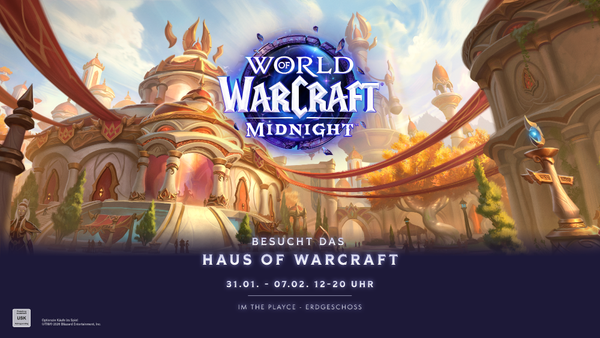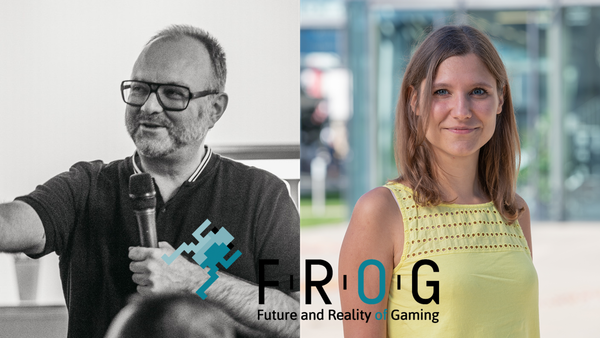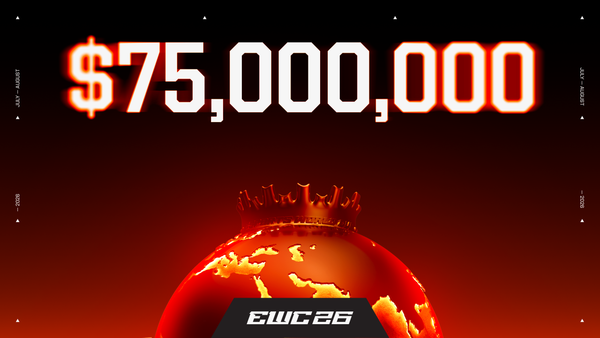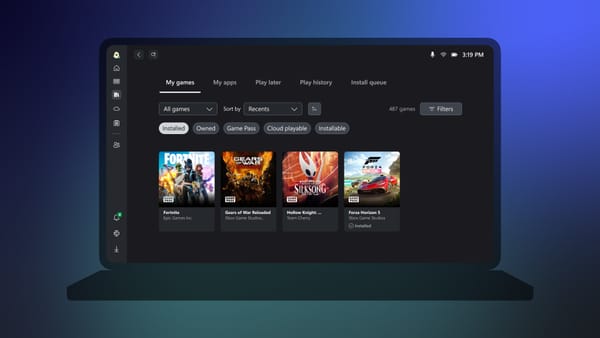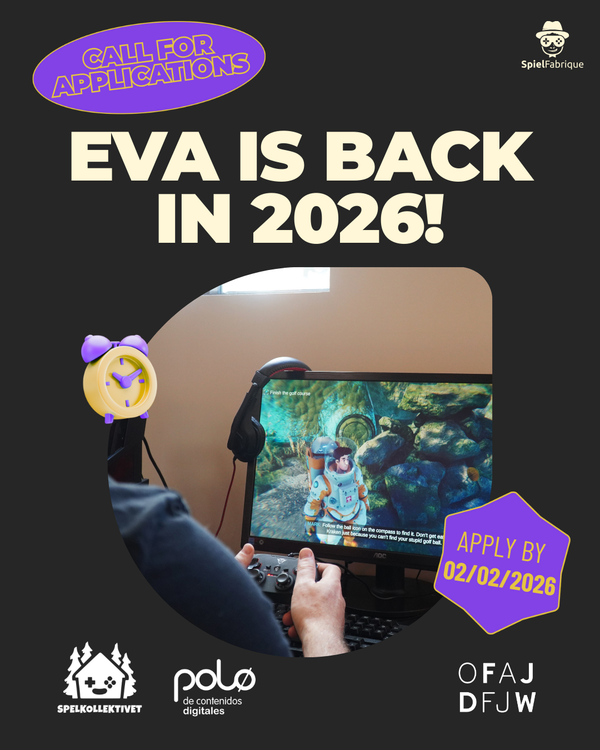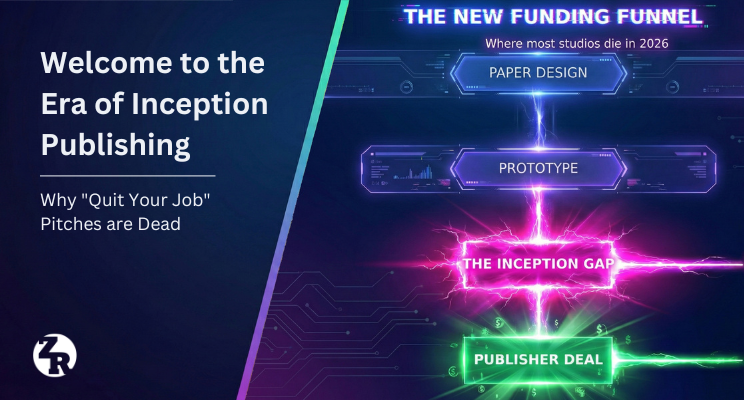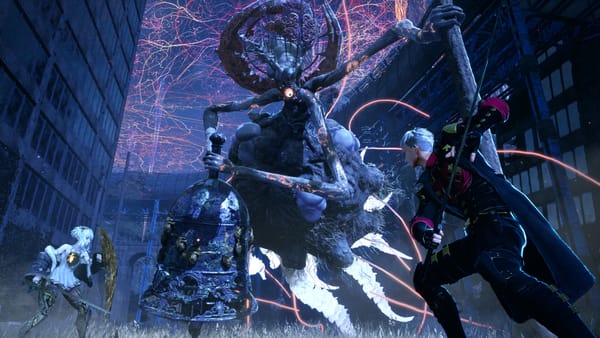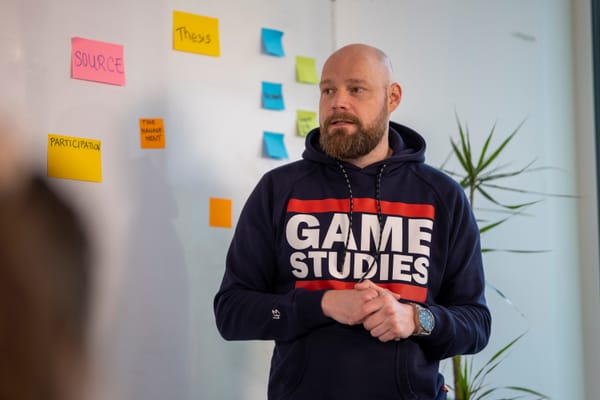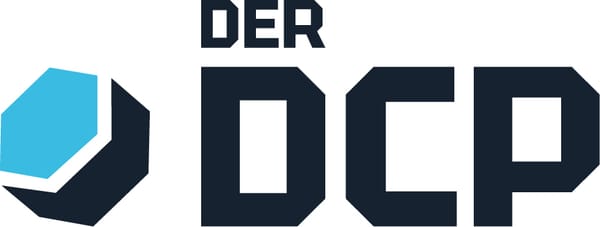John Romero: "Be Proactive, Just get Your Name out There"



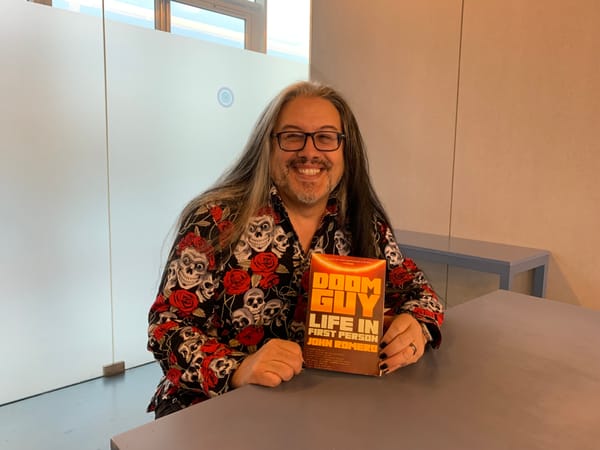
On site at DevGamm Lisbon, we sat down with Doom maker and Romero Games founder John Romero to talk about the industry layoffs, moving a game company from the US to the EU, the recent strides of Ireland's new games tax break and different ways indie developers can bring attention to their games.
Together with his wife Brenda, John Romero lives and works in Ireland since 2015 with their own company Romero Games. Situated in Galway on the West coast, the team was involved in consulting for the recent developments of game funding through tax breaks in Ireland. Both are also invested into the interconnected artscape of their chosen hometown. We interviewed John Romero after his keynote on DevGamm Lisbon 2024.
As someone who is around as long as you are: What do you think about the current situation in the games industry?
John Romero: First of all, the industry was like, hey, COVID was really great for business. We hired so many people to make a lot more games because everyone stays at home and then COVID ends and now everybody's not sitting there playing games all the time. And now they have to right size their companies back to a pre-COVID level, which is why this is happening. It's not because people stopped playing games. They're playing games more than ever. It's just that the industry went into overdrive during COVID. So if game devs want to make it happen again, they'd have to make a situation like COVID happen again. That's obviously unreasonable.
That's the reason for the situation now, it's just economically having to get back to that normal state which, which shows there we were at the limit with the amount of people, the amount of games that we could sell and get through and all that. People could sell more games during COVID, so they pumped up. Look at the numbers of people that are that are being laid off. That's a lot of people. And it's not just games. Look at Facebook. People were sitting on Facebook when you're home remote, you're on Facebook. And so there were a lot more people doing that. And then people are going back to work and they don't have all that time anymore to do that. And so Meta doesn't need all those people anymore. So what's happening now is just overall getting back to a more normal state of the industry world, and that's unfortunate.
"The industry went into overdrive during COVID." - John Romero
Do you think there is any way for game devs to inoculate against this?
The thing for developers to think about in all of this is if you want to keep surviving in the industry, no matter what happens in it, whether you go through layoffs like this huge wave because of the rightsizing of the economy or even during great economic times like the beginning of COVID, where everything was going up, having a really great game design is key to your full success forever. If you have a really great game design, everyone wants to play it. If you have a really great game, people will live in it and you will always have a job. But getting to that game design is really critical. It's really important to focus on what makes people like this and testing it thoroughly, like spending a little bit more time while you're creating the idea of a game and getting it in front of some people before it actually is finished. And then if it gets to that point and people love it, when it's at an early access stage, still don't release it. Keep on showing it to people and make it more fully featured for Early Access, because I feel that Early Access is often used to feel around the question "should I do this or not?". And if nobody cares in Early Access, you just shut it down. Do more research before you even go into Early Access. Don't start on something that no one will like anyway in the first place. So you have to really get your finger on the pulse of what's fun or something that you know people do like already, and that you can take and make even better because. Take a game you love and that people love. Take a whole genre and think of what to do to make it better. Think "I've always wanted it to be like this" and experiment with that and see how that how that feels. And a lot of times it's not about the story of the game. It's about the experience of the game. What does it feel like? The focus is design. You have to focus on the design. No art, no programming, no level design, none of it matters if the idea is not great.
And yet a lot of studios have the problem that they don't get an audience to see their game, to even get the chance to see where it goes and if it's good.
Yeah, there's tons and tons of games. But if your game is really amazing, it will find its audience. The advice that I've always given people is because there's so many games and social media is changing, like people are bailing on X and they're going to BlueSky for example, you can't depend on building an audience on these sites. I've I've always been a huge proponent of making a really great game as a base for success and then send it out. If feel it's really good and you have a bunch of friends that think it's really cool and don't lie to you to make you feel good, get the industry to notice you. Send it in to every single indie showcase that has awards that will get covered by the press. And even if you're just nominated and not, your name is out there. You don't need to win. You just need to get your name out there. If you've been nominated for something that's a big deal. It means you went through all of the processes of making sure that your thing is unique and it's interesting and it's super likable and it does something really great in one of the areas of of development, whether it's an artistic achievement or it's audio or whatever. It means you've nailed it. And getting your game to a lot of these showcases around the world, which now can be virtual even, that just gets your name out there and gets your game out there. And getting feedback from people in the process is pretty critical too. That's the cheapest way of doing it. Submit it for entry and try and get that publicity for free. Be proactive. No one's coming to you for your game. There's too many games. I remember when when I first got my industry job, I was an expert when I got my first industry job and even then no one was coming to me to hire me. They didn't even know who I was. It's even more so today. Unless you put yourself out there, you're going nowhere. You need to know how to promote yourself, but you have to have something good to promote. When I went to do my first my first job, I was eight years in on programing and making games. I'd already made dozens of games at the time. I had to put myself out there. Just as an example, in going to get that job I went to a conference and I specifically targeted that company I wanted to get a job at. I went in and I took the game out of the computer in their booth and put mine in. It was insane. But that's what I did. So, yeah, go out there, be proactive. No one else is doing it for you. If you don't know how to do it, find someone who's your cheerleader and that will help you out and can promote you and get them to do it then. You got to you get to promote yourself and you need to figure out how to get the confidence to do that. And usually the confidence comes from a shitload of work and getting good at something.
You started in the US and now you are working in the EU. How did that come?
This company, Romero Games came from the company in California called Loot Drop and so we started Loot Drop in 2010 and by 2015 we decided we're going to go to Ireland. We stopped Loot Drop and the next day we started the Irish company. It was a direct continuation. We had two employees from the previous company hop over to Ireland with us. It's a new company, but still the same people owning it and everything. So we've been in business for 14 years and we've done a lot of different games. We moved there because of how great it looked and because Brenda has family there, that was important. I come from the desert in Arizona and I've lived there for a long time. And then I decided I'm ready for another country. I used to live in England as well. We always loved Ireland, and we knew that we were going to have to come back when we still lived in the US, so here we are now.
And what do you think about the games environment on both continents, with funding and such?
Well, if you're making games in the U.S., you're not getting any help. And so you get used to zero help and not expecting help. When we came to Ireland in 2015, we didn't expect anyone to help us. We didn't get any help, even though we probably could have gone out and gotten funding. We were just used to having to do it ourselves from nothing, you know? After we moved to Ireland, we did not get a game deal for a year and a half. So we had a company in office. Two employees, a house that were they were renting packed full of our six kids. And we had to basically deal with not having a game project in development that was funding us for a year and a half. So we stuck to what I said earlier. We knew we'd have to design and promote and all that kind of stuff and go to gamescom and all that. And that's what we did. We went to gamescom with two games concepts and one of our games got picked up and we decided to focus just on that one game and drop the other one.
The Irish games industry has changed significantly since you arrived there almost ten years ago. What was it like, and how is it now?
In Ireland specifically, there is was brain drain for the longest time. Part of the problem was you couldn't keep people there because there is no jobs. If you don't have a game industry that can pay people wages that they can live on or that are appropriate for their level, then you don't really have an industry. So for years when we went there, we did a study of the industry of the game industry in Ireland. We were all over the country. My wife Brenda had a Fulbright Fellowship grant for a project by the US and the Irish governments, they came together to figure out what can be done about the Irish game industry to make it better. Brenda wrote a big 50 page report for them in 2013. And 2023, almost nine years, nine years later, they finally enact a game development tax break. The tax break is 32 per cent. A third of your money comes back at the end of the year ff you've been making games in Ireland. It's huge. And now I've been told by Tencent and a bunch of companies that Ireland is now on their map, that the that tax break means everything for them since they save so much money developing there. And they start asking if there are good people there. And since Ireland is in the EU, so many good people can just come. They will come to Ireland to work there. We've done just that. We've hired a ton of people at our studio in Ireland from all countries. They come on site and they live in Ireland, so that's great for Irish tax base and all that stuff. All thanks to this really great tax cut. So as far as EU is concerned, Ireland's done really, really well and it's really important for us to be there and to have a game that can really take advantage of production environment, a big game from a big team.
Like I said, we did not move for the game industry, because there was nothing there. But we did meet all the indies and the people in the game industry in Ireland in 2014 and we felt that it feels like the early eighties in the US, just thirty years later over in Ireland. Everybody was excited for someone to win, not for themselves to win but for anyone in Ireland to win, to make the next Minecraft of that country, to bring the attention, to bring the devs and the jobs and all that stuff. That's what everybody was really excited about. And we love being in a community that's so engaged. It's not "What's your exit strategy?" Over there, it's the hope that somebody can make something super popular and everybody is rooting for each other. So it's a true community of artists that care about each other. The Irish culture is about that. You know, Irish culture is about supporting the arts. And they supported the visual arts for so long, not just in movies and in animation, but just art in general. Right across from our office is an old church. And on the top floor of the church was just artists living up there, paid for by the country for 30 years. These people just painted all day to see if they would make something incredible or just to be an artist and live that way. So yes, Ireland is a really great place to live as an artist. It's very bohemian. It's so artsy and super diverse and inclusive and you name it. Ireland is amazing. Galway is beautiful. We just love it. We're directly in the city center and that whole area is always changing. It's great to see the diversity of business. And they keep all the big companies out, WalMart will never be in Ireland. It's all about the individual business owners that matter to the country. So they keep all the big ones out. I just really love the support of the country for Indies in every form.
Finally, how are the other forms doing in Ireland, and more specifically in Galway where you live and work? Is there a lot of cross-pollination with games?
Yeah, there is Ardán, the Film Institute of Galway, and they basically promote all kinds of stuff including games.They've kind of adopted the BAFTA view: film, television and games. Those three pillars are the basis of BAFTA and Ardán has done the same thing. For them, games are an art form. They actually make more money than everything else, so it makes sense economically. We work with Ardán and we are part of it, ee bring speakers in to speak to crowds of people. We recently had Josh Sawyer in, the Creative Director of Pentiment. In Ireland, the connections are great between all the different areas. My wife Brenda was even on the board of Northern Ireland Screen, which is a different country. We are involved with Macnas which is the company that creates the huge mechanical Halloween floats for parades. It's a totally different area, but it's still art. We know a lot of the street performers in the city. It's just a really tight-knit community over there.
